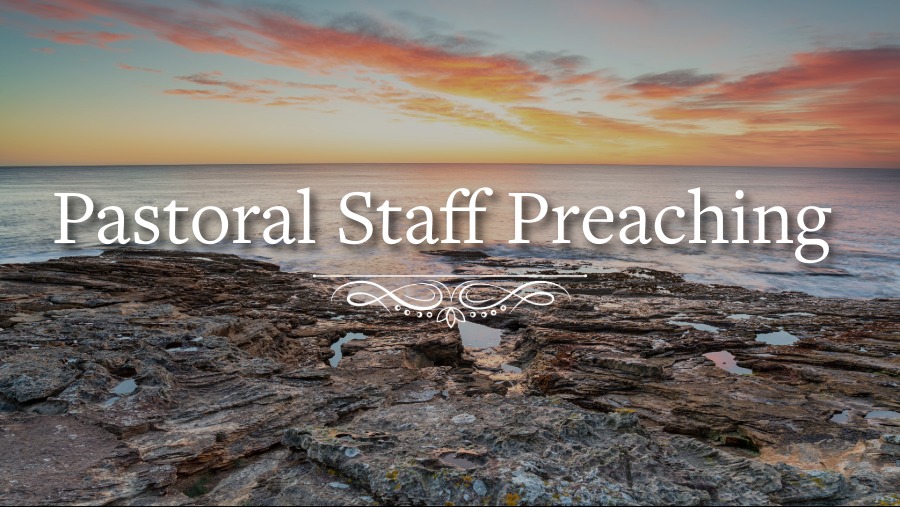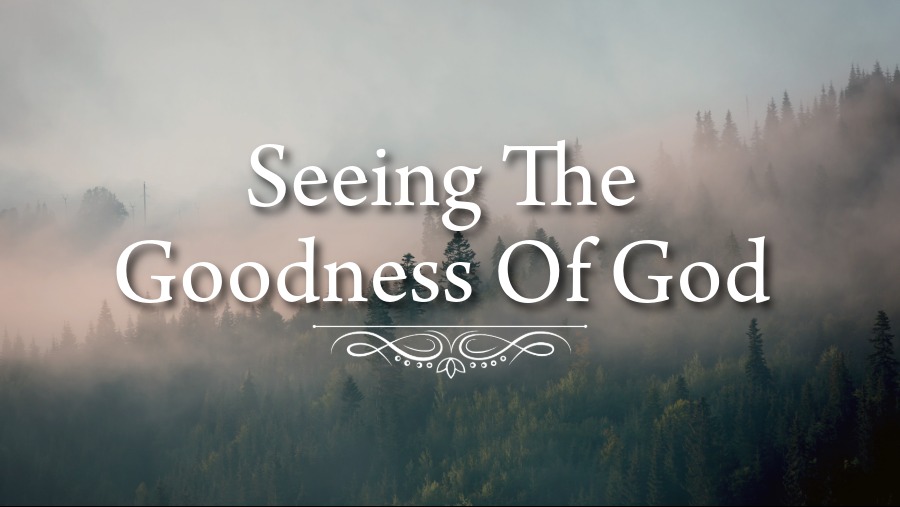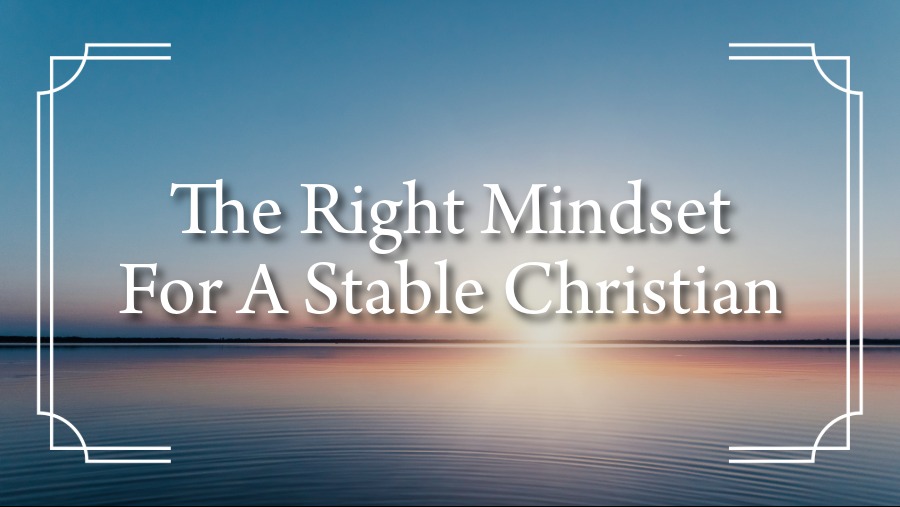
The Righteousness Of Faith Pt. 2
The message opens with a pastoral heart-check on why we gather: sometimes out of duty, sometimes because we want to, and—ideally—because we need to. “Want” is fickle and feelings-based; “need” is steady and life-sustaining—like food and water. The aim of Christian maturity is for life with God and life in the church to move from “have to” and “feel like it” into “I need this.” With that frame, the sermon turns to Romans 9–10, where Paul models this same deep need: he aches for Israel to be saved, holding together God’s sovereignty and human responsibility.
Paul’s Burden, Our Posture of Service
Romans 9 revealed Paul’s anguish for his people; Romans 10 asks why they rejected Christ. Before expositing the text, the pastor presses a practical layer: love looks like service. Parents are to serve children, spouses to serve one another, and believers to serve the people around them. That servant posture both shapes our loves (we learn to enjoy work done in love) and expands our influence. Passion for people, not position, should drive ministry—mirroring Paul’s readiness to sacrifice for Israel.
The Core Problem: A Righteousness of Our Own (Rom 10:1–5)
Paul diagnoses Israel’s spiritual misfire (vv. 1–3): “ignorant of God’s righteousness,” they “established their own” and refused to submit to God’s. They did God-things without obeying God Himself—a crucial difference. Like teens who outwardly comply when convenient, Israel chose a form of righteousness without a surrendered heart. Moses had already warned that if you choose the law as your path of righteousness, you are bound to live by it perfectly (v. 5)—an impossible route that shuts you off from the grace found in Christ.
The Nearness and Simplicity of the Gospel (Rom 10:6–10)
Against a complicated, ladder-climbing approach (“ascend to heaven,” “descend into the deep”), Paul insists the word is near—“in your mouth and in your heart” (vv. 6–8). Salvation is not about heroic spiritual feats; it’s about responding to a word already brought near by God. Hence the foundational call (vv. 9–10): confess with your mouth Jesus as Lord, believe in your heart God raised Him from the dead—you will be saved. The pastor underscores the simplicity: real confession and real belief produce real salvation—and that salvation births a sincere desire to obey God, not to perform a checklist of religious badges.
No Shame in Trusting a Sure Thing (Rom 10:11–13)
“Whoever believes on Him shall not be ashamed” (v. 11). Faith in Christ is a sure thing—unlike speculative promises that leave people embarrassed and empty. The pastor illustrates with an “amazing investment” pitch that fizzled; putting trust in hype leads to disappointment. By contrast, faith in Christ never leaves us red-faced because the object of our faith is faithful. Paul adds the universal scope (v. 12): no difference between Jew and Greek—the same Lord is rich to all who call. Then the sweeping promise (v. 13, echoing Joel 2:32): whoever calls on the Lord’s name will be saved.
Importantly, the pastor widens “saved” beyond initial conversion alone. Yes, this verse grounds eternal salvation, but the Lord also “saves” His people repeatedly in the Christian life—from the world, the flesh, the devil, and countless troubles. Isaiah 12’s refrain (“God is my salvation”) captures both: God saves us to eternal life and keeps saving us in everyday life.
How People Believe: The Chain of Gospel Logic (Rom 10:14–17)
Paul builds a necessary chain:
- Calling requires believing.
- Believing requires hearing.
- Hearing requires a preacher.
- Preachers must be sent.
If people are to call on the Lord, they must hear the Word. “Faith comes by hearing, and hearing by the Word of God” (v. 17). This shifts responsibility to the church: evangelism is not a pastor-only assignment but a Christian assignment. If someone shared the gospel so you could be saved, when was the last time you did that for someone else? Busyness doesn’t excuse silence; the logic of Romans 10 refuses to let any believer outsource their witness.
The pastor carefully relieves a common fear: when people reject the message, they are not rejecting you; they are disobeying the gospel (v. 16). Our task is faithfulness in proclaiming; the heart’s response is between the hearer and God.
Have They Heard? Yes. Did They Believe? Not All. (Rom 10:18–21)
Paul anticipates objections by citing Scripture Israel revered:
- Psalm 19 (v. 18): The message has gone out broadly.
- Deuteronomy and Isaiah (vv. 19–20): God foretold He would provoke Israel to jealousy through a “no-nation” (Gentiles), making Himself found by those who weren’t even seeking Him.
- Isaiah again (v. 21): God stretches out His hands all day to “a disobedient and contrary people.”
The point is two-edged: Israel cannot claim ignorance (they heard), and God’s posture has been persistent mercy (He stretched out His hands). The tragedy is not lack of access but lack of submission.
Zeal Without Knowledge vs. Worship in Spirit and Truth
Israel’s zeal lacked knowledge; they had passion misaligned with truth. The pastor draws a wider worship application: Jesus calls us to worship “in spirit and in truth.” Many Baptist contexts can be heavy on truth but light on spirit (result: lifeless singing and robotic religiosity). Some Pentecostal contexts model the opposite—overflowing spirit with thin truth. The biblical aim is both—robust doctrine igniting fervent, heartfelt praise. When truth and spirit converge, worship is alive and aligned.
The Danger of Robotic Religion
A cutting pastoral warning lands here: it’s possible to love our system—the right Bible, the right hymns, the right dress—more than the Savior. That yields a “robot for Christ”: externally correct, internally cold. That’s Israel’s Romans 10 problem updated—self-righteousness dressed in church clothes. True salvation (confessed and believed) awakens a living obedience birthed by grace, not a prideful checklist sustained by self.
Two Ongoing Responsibilities
- Let the Word shape your faith.
- Faith is not self-generated optimism; it is planted and grown by the Word (the “seed” in Jesus’ parable). Keep placing yourself where Scripture can take root—preached, read, sung, discussed—so faith matures from “duty” to “need.”
- Let your faith give the Word.
- The same Word that births your faith is the Word your neighbor must hear. God saves; we speak. God sends; we go. Some will not obey the gospel, but our calling stands: how will they hear without a preacher?
The Pastoral Appeal
The chapter closes with two simultaneous truths: (1) Human responsibility—Israel heard and refused; people today do the same. (2) Divine patience—God keeps stretching out His hands. In that tension, believers must reject self-righteous performances and live by simple, confessed, heart-level faith in Christ that produces sincere obedience and bold witness.










.jpeg)











